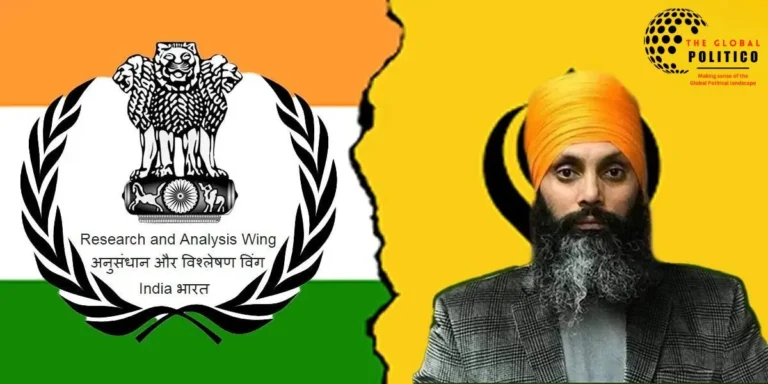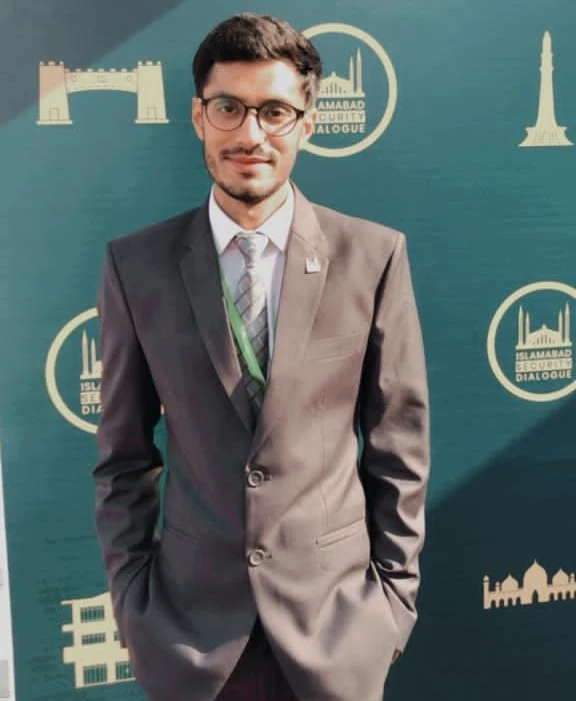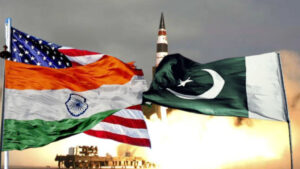India’s Foray into International Assassinations

By Muhammad Abubaker Khan
India’s external intelligence service, Research and Analysis Wing (R&AW) is under global monitoring due to cross-continental terrorism. R&AW is facing accusations of involvement in the assassination of Sikh separatist leader Hardeep Singh Nijjar in June in Surrey, outside Vancouver, Canada. Moreover, R&AW is implicated in a separate incident related to the discovery of a plot to assassinate a Sikh separatist Gurpatwant Singh Pannun (a dual citizen of the United States and Canada) on US soil. The US has charged an Indian national with paying a hit man to kill Pannun, who works as the general counsel for the New York-based Sikh for Justice (SFJ). SFJ is a group that advocates for the secession of India’s Punjab state and the creation of an independent Sikh state called “Khalistan” within India.
Reportedly, the scheme was foiled back in June by the Drug Enforcement Administration (DEA), shortly after the assassination of Hardeep Singh Nijjar. The US Justice department alleged that an Indian Government Agency Employee (named – CC-1), whose responsibilities included security and intelligence working together with Nikhil Gupta directed an unsuccessful plot to assassinate Pannun. The media reported that, Nikhil Gupta was later arrested in June by Czech authorities. The top federal prosecutor in Manhattan Damian Williams said in a statement “the defendant conspired from India to assassinate, right here in New York City, a US citizen of Indian origin who has publicly advocated for the establishment of a sovereign state for Sikhs”.
Moreover, it is not the first occasion that R&AW got caught red-handedly. Canada’s Prime Minister Justin Trudeau stunned the diplomatic community across the world with explosive allegations in a speech to the House of Commons back in September. He said “Canadian security agencies have been actively pursuing credible allegations of a potential link between “agents of the Government of India” and the killing of a Canadian citizen, Hardeep Singh Nijjar.” He further added “Any involvement of a foreign government in the killing of a Canadian citizen on Canadian soil is an unacceptable violation of our sovereignty.” In addition to that, Foreign Affairs Minister Melanie Joly ordered the expulsion of a senior Indian diplomat – Pavan Kumar Rai, the head of R&AW in Canada. As a result diplomatic tensions between India & Canada escalated, leading to the expulsion of diplomats from both sides.
The US is deeply concerned about the plot and killing of Nijjar. It is pressing the Indian government to conduct an investigation and hold to account those responsible. US ambassador David Cohen to Canada was the first one to have confirmed that Trudeau’s allegations were based on the information shared by “Five Eyes” (An intelligence alliance between the US, UK, Canada, Australia, and New Zealand). Cohen also added during exclusive interview to CTV News that “there was a lot of communication between Ottawa and Washington in relation to Trudeau’s allegations.” This suggests that without the support of US, Canada may not have opted to make these revelations public.
In addition to that, the assassination plot so concerned Biden administration that he dispatched two top intelligence officials to press India for cooperation and issue a stern warning against any potential repetition. Media reports revealed that CIA Director William Burns flew to India in August to deliver the message of displeasure to his counterpart Ravi Sinha, followed by Director of National Intelligence Avril Haines in October. The latest visit by the FBI Director Christopher Wray to India underscores ongoing high-level attention and seriousness with which the matter is being addressed.
It is important to highlight here that, Pakistan repeatedly brought attention to India’s subversive activities. But these concerns were largely ignored by the Western countries. However, incidents in Canada and US support of Pakistan’s claims that Indian intelligence has been actively involved in abductions and assassinations, and that Pakistan has remained a target of espionage and a series of targeted killings by R&AW. India’s malicious activities in Pakistan are evident from the arrest of Indian Naval officer, Kulbhushan Yadav from the Pakistani province of Balochistan in March 2016. He entered Pakistan clandestinely to foment trouble by facilitating terrorist activities and spying for R&AW. He later admitted to his crime. In addition to that, Pakistan in December 2022, released a comprehensive dossier providing concrete and irrefutable evidence of India’s involvement in the Lahore attack of June 2021. The terrorist attack was planned, supported, and executed by Indian intelligence. These actions under Modi’s far-right government highlight a pattern of rogue behavior.
Apart from that, in recent times, R&AW has encountered significant setbacks and faced global embarrassment. The media reported multiple incidents of Indian spies being captured in various countries on espionage charges. Back in 2014, UAE arrested and subsequently convicted two Indians for sharing sensitive information about the UAE with Indian intelligence. Likewise, R&AW is under scrutiny with four separate cases of alleged spying currently being investigated in Germany. It includes an Indian couple guilty of espionage. They confessed to collecting and supplying information to R&AW about Kashmiri and Sikhs in Germany. In a recent development, eight Indian officers are facing the death penalty in Qatar for espionage. This sheds light on another apparent failure in R&AW’s operations.
Moreover, according to a report published by ‘The Print’, it was revealed that the closure of R&AW’s stations in San Francisco and Washington DC has left the agency unpresented in North America for the first time since its establishment in 1968. The decision to close R&AW’s stations is a major blowback for India. It also shows apprehensions about the agency’s continued offensive operations in the West. Along with that, the British intelligence multiple times had voiced displeasure over the increasing involvement of R&AW in Sikh diasporic politics in the country under former R&AW chief Samant Kumar Goel. Furthermore, an explosive report by The Washington Post exposed the activities of Disinfo Lab. It was created in mid-2020 by Lt.Col. Dibya Satpathy, an intelligence officer, to influence the global perception of India. He established links with Western journalists and sought favorable coverage of India & critical coverage of China and Pakistan. These incidents collectively unveil that the Indian intelligence apparatus is now under heightened global scrutiny. Additionally, this series of incidents and cases validates Pakistan’s apprehensions regarding India’s actions that they were genuine, rather than mere paranoia that had been overlooked by the West due to geo-political dynamics.

Muhammad Abubaker Khan

The Duality of U.S. Policy in South Asia
The recent U.S. sanctions on Pakistan’s missile program, coupled with unsubstantiated claims of its targeting the U.S., reflect a broader geopolitical strategy aimed at undermining Pakistan’s strategic autonomy while selectively favoring India’s missile advancements, thereby exacerbating regional power imbalances in South Asia.

The BRICS Challenge: Can 100% Tariffs Save the U.S. Dollar?
Trump’s 100% tariff threat on BRICS may backfire, accelerating de-dollarization, sparking trade wars, and undermining U.S. economic dominance globally.

Threat Towards Nuclear Safety and Security Amid Global Tensions
Global nuclear safety is increasingly at risk amid rising international tensions. While India and Pakistan exhibit restraint with nuclear infrastructure agreements, superpowers like the U.S. and Russia escalate conflicts by targeting strategic facilities. This disparity emphasizes the need for global nuclear safeguards to prevent potential catastrophes from intentional or accidental nuclear incidents.

The SCO Summit in Pakistan: Opportunity or Challenge?
The upcoming SCO Summit presents Pakistan with a crucial opportunity to enhance its global standing, but also significant challenges. Missteps in handling political instability or countering India’s narrative could backfire. To seize this moment, Pakistan must skillfully manage relations with key players like China, Iran, and Russia while diplomatically addressing India’s criticisms. A well-crafted, strategic approach is essential to turning these challenges into long-term foreign policy gains for the country.

Indian Occupied Jammu and Kashmir Elections 2024: A Mere Façade?
The article argues that 2024 elections in Indian Illegally Occupied Jammu and Kashmir are seen as a façade, aimed at diverting the region’s freedom movement amid ongoing human rights violations and central government control following the abrogation of Articles 370 and 35A.

Industry, Innovation and Infrastructure: Building A Foundationally Sound Pakistan
This article investigates Pakistan’s position within Sustainable Development Goal (SDG) 9, “Industry, innovation and infrastructure.” It explores Pakistan’s in developing a robust industrial base, fostering innovation and establishing a sustainable infrastructure network. Through key government initiatives like “Digital Pakistan” and the National Transport Policy, Pakistan’s role maintaining its commitment to SDG 9 is highlighted. Additionally, it explores the potential challenges in addition to their possible solutions that Pakistan face in its journey to Goal 9.

